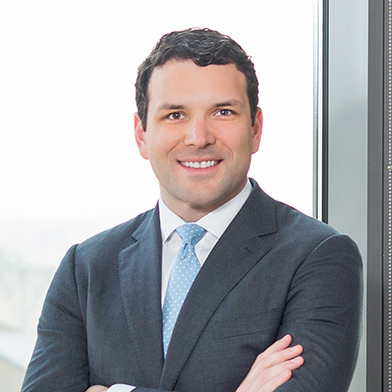By Joel Glover & Emilio Nicolas
Online platforms may soon face restrictions on how they use personal data to customize content and information feeds to users. Recently proposed bipartisan legislation in the U.S. House of Representatives aims to fundamentally change the delivery of content and information online by making it illegal to unknowingly tailor a user’s experience. If passed, the proposal would preclude online platforms from focusing search results on a specific user based on that user’s personal data without the user’s express consent to receiving the customized results.
Under the proposed Filter Bubble Transparency Act, H.R. 5921, an online content provider cannot use an “opaque algorithm,” meaning a “ranking system that determines the order or manner that information is furnished to a user . . . based, in whole or in part, on user-specific data[,]” to determine what information users see and how they see it.
To overcome the restriction, the House bill requires that a user give consent or somehow provide personal data in a manner intended to shape the user’s experience. Otherwise, the provider must offer users an alternative “input-transparent” version of its platform that “does not use the user-specific data of a user to determine the order or manner that information is furnished to such user”. The House bill goes so far as to require that providers employing an opaque algorithm must provide their users with the option of turning the algorithm off “by selecting a prominently placed icon” that instantaneously switches the user to the input-transparent algorithm.
The proposed law applies not only to websites, but any “covered internet platform” such as mobile apps, social media sites, video services, and search engines.
In other words, the proposed legislation would require developers to create two entirely different experiences or face penalties from the Federal Trade Commission. The exact scope of the penalties remains to be seen, but a violation would be deemed an unfair or deceptive act or practice under the FTC Act.
Proponents view the House bill as a necessary step to stem the misuse of user data to manipulate what the internet forces us to consume, which has been a hot topic of recent Congressional hearings. They worry that unwitting users exposed to manipulated streams of information may not know how that information is getting to them, making their user experience artificial and unauthentic. With that in mind, the bill hopes to transfer control over the flow of information from providers to users and curb the harmful or addictive nature of certain sites. Lofty goals indeed. A bipartisan Senate version of the bill, S. 2024, has also been introduced under the same name.
So, what should a provider do in response to this proposal? Nothing yet. When and if it becomes law, developers will have one year to update their platform designs and the associated user agreements.
Until then, the audacity of opacity continues limited only by the current guardrails in place.
 Meet Joel
Meet Joel
Joel R. Glover is an attorney in the Trial & Appellate Litigation practice of Jackson Walker’s Houston office. Joel represents clients throughout the United States in media and entertainment litigation, trademark and copyright infringement litigation, energy litigation, and financial services litigation. In addition to his practice, Joel volunteers his time with the American Bar Association Forum on Communications Law, the ABA Tort Trial & Insurance Practice Section’s Media, Privacy, and Advertising Law Committee, Alley Theatre, and the West Point Society of Greater Houston.
 Meet Emilio
Meet Emilio
Emilio B. Nicolas is a copyright, trademark, and media rights attorney, and Co-Chair of Jackson Walker’s Entertainment, Digital & Sports group. His practice includes litigation and transactional work, including IP and media rights protection, enforcement, and licensing for various types of businesses in the entertainment, media, and technology industries. His subject matter experience includes copyrights, trademarks, rights of publicity, rights of privacy, trade secrets, advertising, and free speech. He also serves as general outside counsel for many of his clients, helping them identify, assess, and address the various legal risks and issues facing their day-do-day businesses. Emilio is recognized for his successes having been named among The Best Lawyers in America for Copyright Law (2021-2022), one of Austin’s Top Attorneys for Intellectual Property Rights (2021), and a Texas Rising Star for Entertainment & Sports Law (2012-2016).
The opinions expressed are those of the authors and do not necessarily reflect the views of the firm, its clients, or any of its or their respective affiliates. This article is for informational purposes only and does not constitute legal advice.
 Meet Joel
Meet Joel Meet Emilio
Meet Emilio
